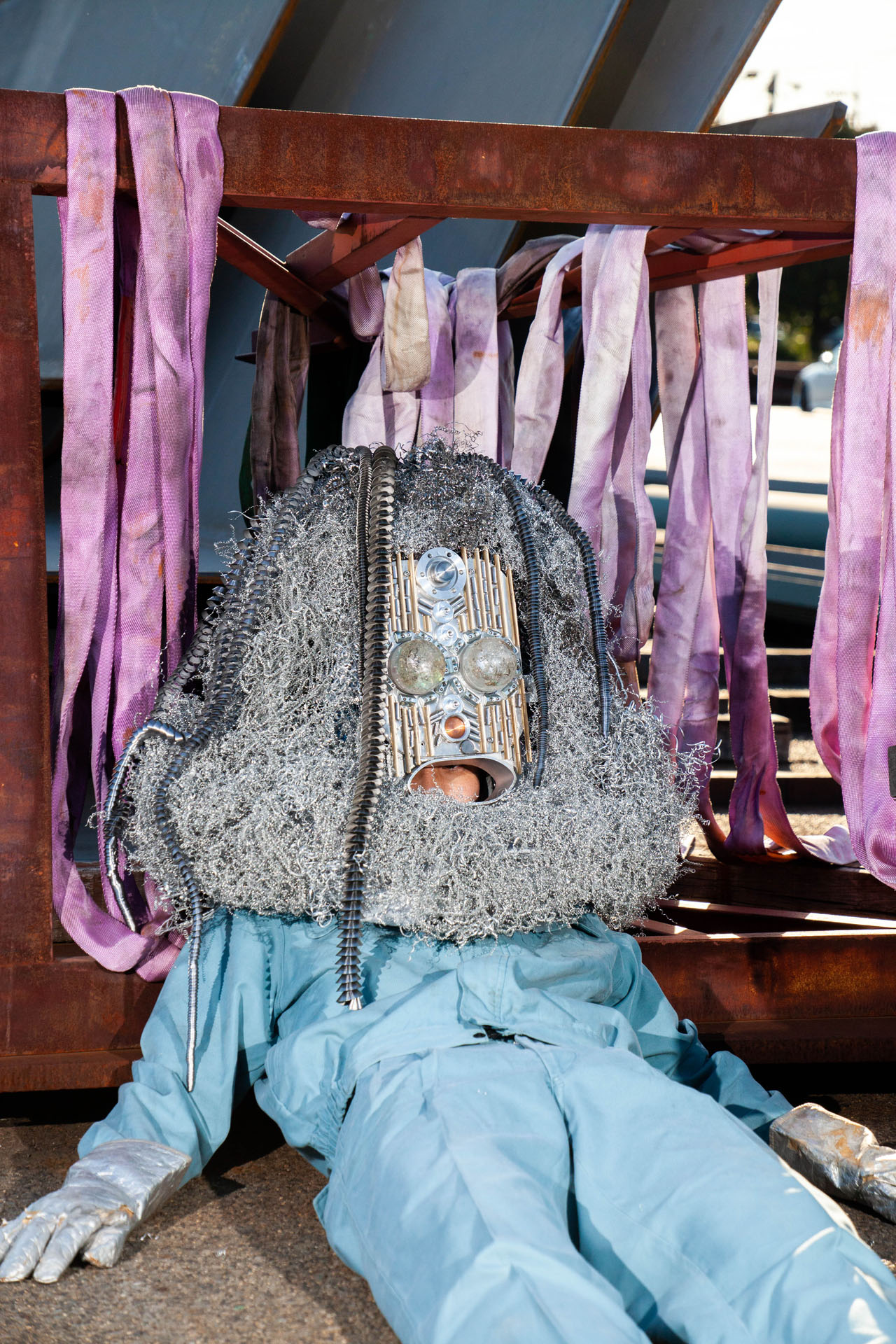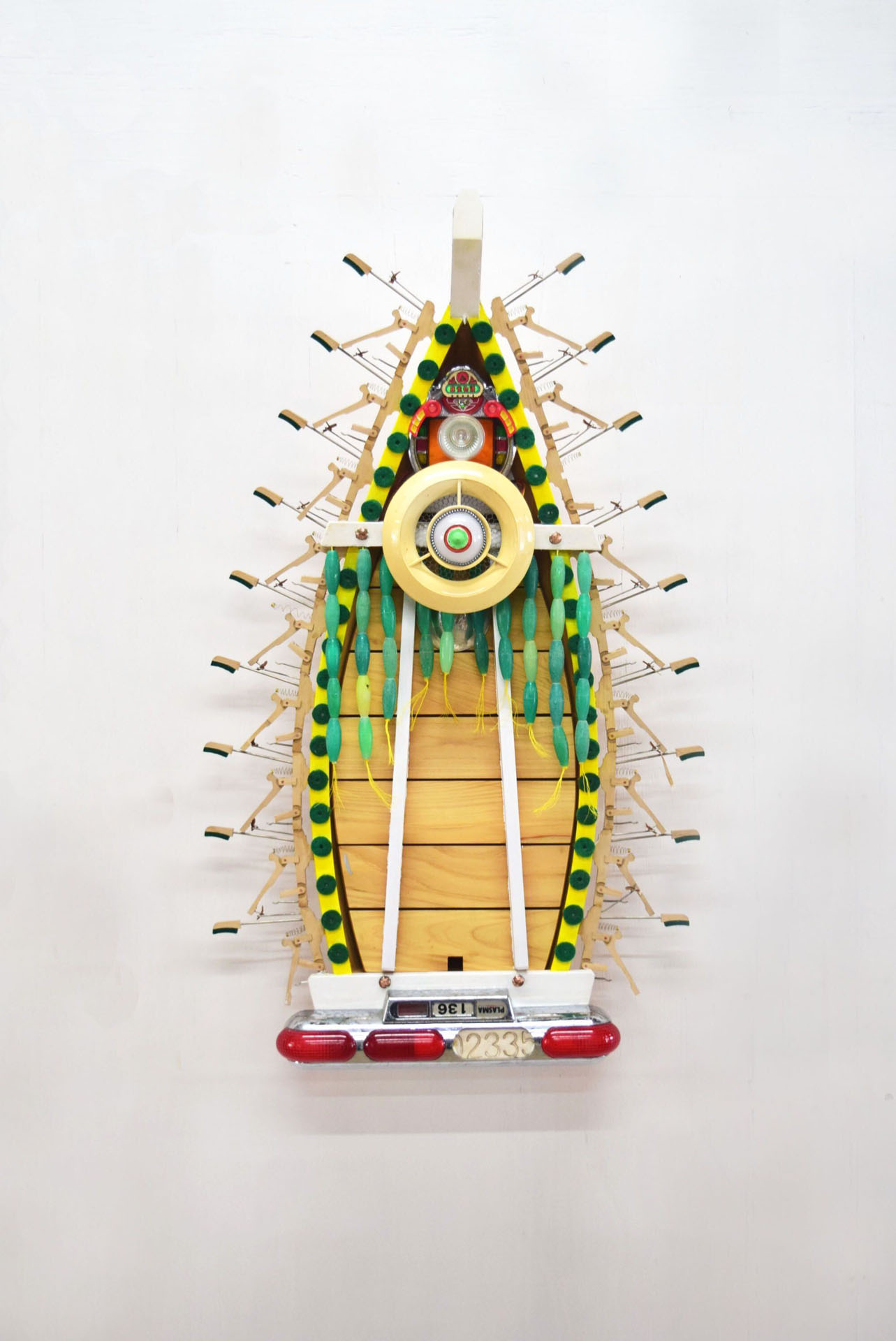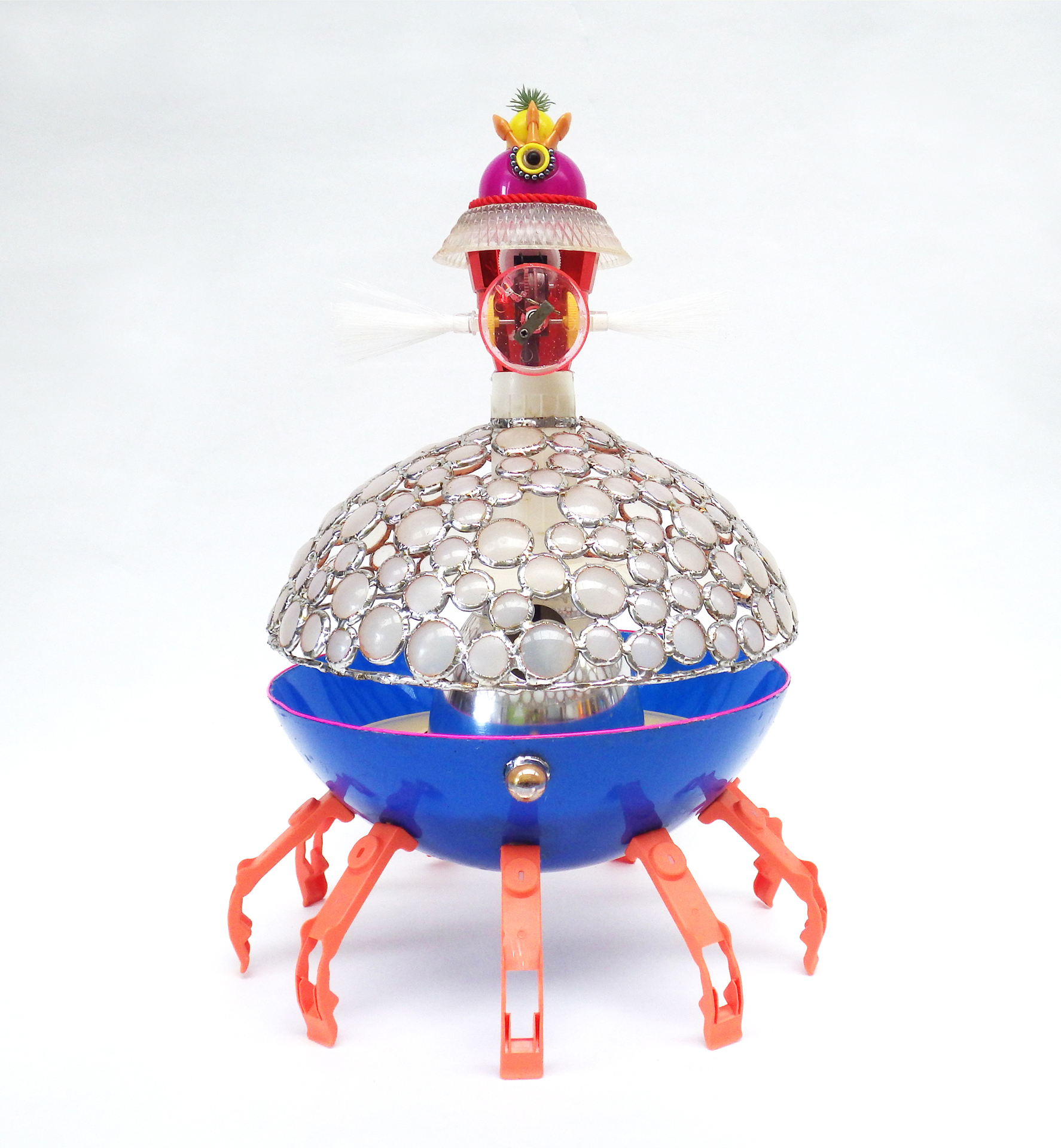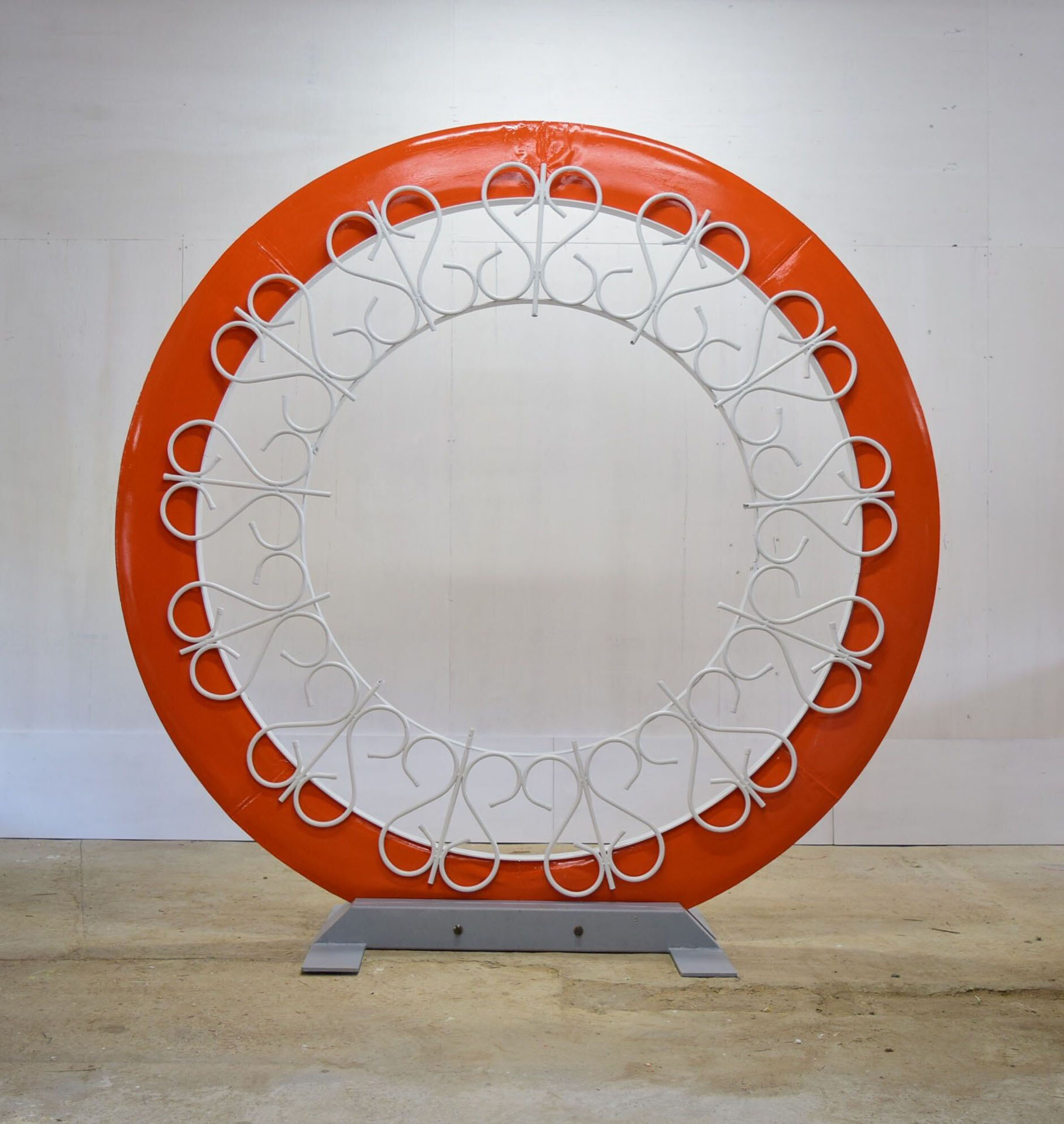Collage made from waste materials from the places visited
Shinya Ishida is a visual artist who creates masks, altars, and other works that use collages of the rubbish and trash he collects from the places he visits as motifs for everyday prayer. He has been actively presenting his work in solo exhibitions and artist-in-residence programs not only in Japan but also in Thailand, Cambodia, China, Taiwan, and Denmark. This will be his first solo exhibition in eight years.
Due to her interest in fashion, Ishida majored in textile design at Osaka Seikei University's Faculty of Arts. However, although she wanted to pursue a creative life, she wasn't sure what to create. During her days of searching, she visited Thailand in her second year of university, and her perspective on life opened up.
Seeing the faith that is so deeply rooted in people's lives, he came to understand the strength of the invisible power that exists in the human heart. Ishida, who had not had any faith until then, also came to the realization that he wanted to have a god for himself.
"Unlike Japanese Buddhist statues, these cheap-looking idols are also objects of prayer for people. I was struck by the contrast with the depth of religious faith."
This is how he created the masks that are objects of faith, "The World's Mask Series." The materials he used at the time were scraps of wood. Memories of the past came to him. As a child, he loved picking up things he found on the street, like a single eyeglass frame or scraps of flyers. While studying textiles at university, he was not satisfied with just making fabric, and would "force" cassette tapes, copper wires, and other things he found into sculptural objects.
I had forgotten about it for a long time, but as time passed, I felt like I was being drawn to an invisible force, and that was the moment when "what I love is connected." This was the start of my creative life, which revolved around the theme of "invisible force."
A way out to new values
"When I was staying on the island of Oki to create an art piece, I noticed that the things that washed up on the shore were completely different from those in Wakayama, where I live. The waste represents the land, and as the land changes, the waste also changes."
"Some things that wash up on the shore remain forever, while others are washed away somewhere before you know it. Things that have been drifting in the sea or sky for ages and trash in a trash bin that was thrown out yesterday are imprinted with completely different times and memories, and when they come together it feels as if time is enjoying a conversation."
Ishida creates works that are collages of waste materials, and by transporting them to different locations, he creates a shift in the cycle of things from birth to destruction, in an attempt to create new values. These methods and intentions can be seen as part of the lineage of relational art, which has become increasingly common in Japan since the 2000s.
Ishida says he likes the feeling of "time flying" when a song he used to listen to comes on and he instantly goes back to that time. This exhibition, "Time Conversation," is made up of collages of things he has collected over time. This will be his first solo exhibition in eight years and will allow him to encounter time and memories that have been frozen in time. He has created works in the shape of gates and holes using recycled materials such as flowerbed fences, parts from pachinko machines and playground equipment. Inspired by the "Tainai Meguri" (walking inside the womb of a Buddha statue) and the "Kaidan Meguri" (walking around the rim of a Buddhist temple while chanting the name of the Buddha), these works are presented as a way to get around values that are incompatible with the timeline.
Ishida's works are made with an awareness of symmetry, using many pieces of the same shape even from recycled materials, and have an evocative quality like a constant beating sound, giving the viewer the sensation of transcending time and space.
The encounter between "obvious" and "thankful"
"'Atarima' and 'arigatari' have opposing meanings, but they are also related. I had traveled to many different places in search of different cultures that would challenge me, but I realized that there are things all around me that can overturn my own values."
We are now being reminded through natural disasters, epidemics, conflicts, etc. that the things we take for granted are not at all obvious, and that we should be grateful for them. Ishida says that she was impressed by the sight of a jewelry artist and a homeless person standing side by side in a garbage dump in Denmark, where she previously visited for an exhibition, each searching for "necessary items."
Ishida's works smooth out and reconnect the discrepancies in time and values engraved in the discarded objects that fill our daily lives. They are offered as a prayer for the gratitude that lies in the ordinary, and as a hope for friendship between people.









